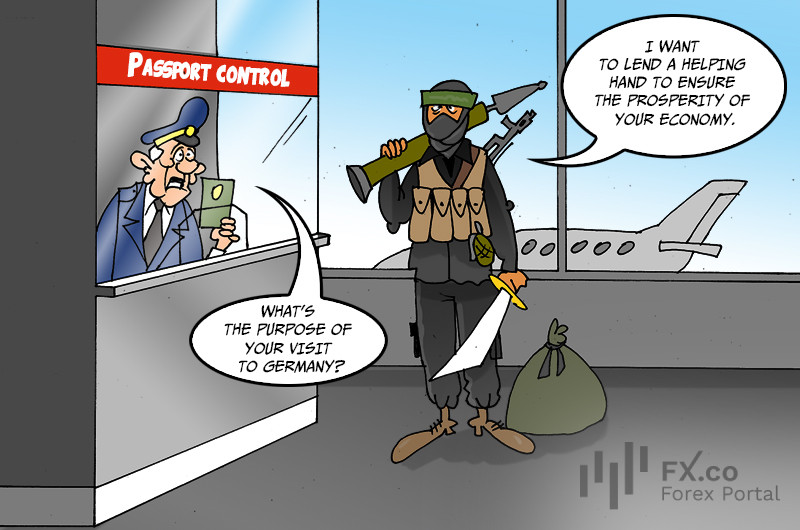
According to German Economy Minister Robert Habeck, the country needs to bring more migrants into the workforce to cope with falling production and an aging population.
The ministry expects the German economy to shrink by 0.4% this year. Exploring ways to boost the country's faltering economy, the government views more workers from abroad as a solution to this problem. Habeck believes that Germany needs to foster skilled migration to tackle "major structural challenges" and cope with an economic slowdown.
"Companies are desperately looking for workers, craft businesses have to reject orders, and shops and restaurants have to limit their opening hours," the German economy minister said. "And it’s not just about skilled workers — we notice in every possible corner that we simply lack workers," he added.
Such a gloomy economic forecast stems from persistent inflation. High energy prices, weak international trade, and sluggish factory activity also contribute to slower economic growth. In addition, the German economy has been weighed down by the steepest series of interest rate increases in a decade.
However, Habeck acknowledges that an inflow of migrants poses imminent threats to the country's economic and political situation. To prevent these risks, the authorities "need better control over who comes into the country and that those who are not allowed to stay must leave quickly," the official noted.
Earlier, Commerzbank CEO Manfred Knof called on the German government to modernize the economy by implementing serious structural changes. This measure is necessary to avoid discontent among citizens and a political shift to the right. In particular, the country needs to raise investment from small and medium-sized businesses, the entrepreneur noted. Français
Français 
 Русский
Русский English
English Bahasa Indonesia
Bahasa Indonesia Bahasa Malay
Bahasa Malay ไทย
ไทย Español
Español Deutsch
Deutsch Български
Български Tiếng Việt
Tiếng Việt 中文
中文 বাংলা
বাংলা हिन्दी
हिन्दी Čeština
Čeština Українська
Українська Română
Română

Commentaires: